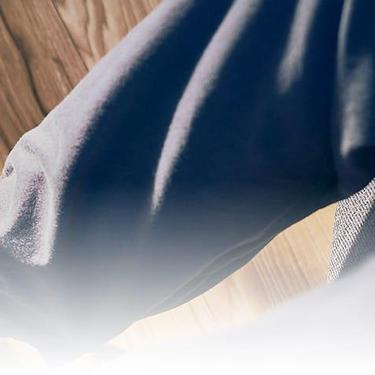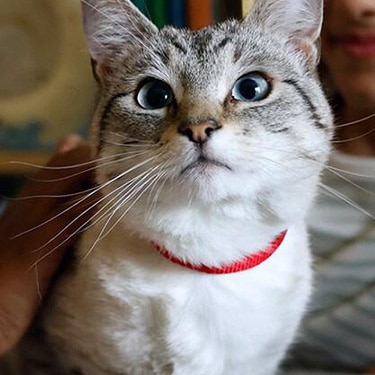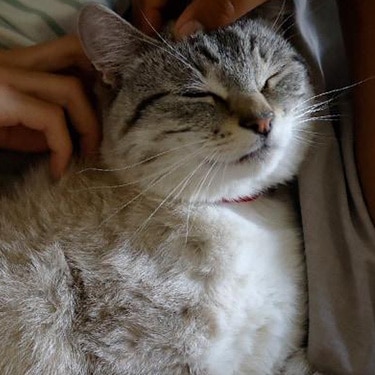
-
Find the right food for your petTake this quiz to see which food may be the best for your furry friend.Find the right food for your petTake this quiz to see which food may be the best for your furry friend.Featured products
 Small & Mini Mature Adult 7+ Dog Food
Small & Mini Mature Adult 7+ Dog FoodHill's Science Plan Small & Mini Breed Mature Adult Dog Food with Chicken is a complete pet food, specially formulated with ActivBiome+ Multi-Benefit Technology.
Tailored nutrition to support graceful ageing in small dogs. Specially made with a synergistic blend of nutrients for energy & vigor.Shop Now Perfect Digestion Large Breed Puppy Food
Perfect Digestion Large Breed Puppy FoodPrecisely balanced nutrition with Hill's ActivBiome+ prebiotic blend actively contributes to supporting digestive health and overall well-being to help your pet feel their best
Shop Now Perfect Digestion Small & Mini Adult Dog Food
Perfect Digestion Small & Mini Adult Dog FoodHill's Science Plan Perfect Digestion Small & Mini Breed Adult Dog Food with Chicken & Brown Rice supports ultimate digestive well-being & a healthy microbiome.
Shop NowFeatured products Kitten Food
Kitten FoodHill's Science Plan Kitten Wet Cat Food Premium Chunks in Sauce with Chicken is a complete pet food for kittens and for pregnant or nursing cats
Shop Now Hairball & Perfect Coat Adult Cat Food
Hairball & Perfect Coat Adult Cat FoodHill's Science Plan HAIRBALL & PERFECT COAT Adult cat food with Chicken is specially formulated to effectively help avoid hairball formation in adult cats while promoting a beautiful coat. Thanks to its mix of essential Omega-6 fatty acids, this food benefits the cat's skin and fur keeping them healthy and shiny. Our Advanced Fibre Technology helps reduce hairballs by naturally promoting their passage through the gut. This food is formulated with high-quality protein for a perfectly balanced, great-tasting recipe.
Shop Now Hypoallergenic Dry Cat Food
Hypoallergenic Dry Cat FoodHILL'S SCIENCE PLAN Hypoallergenic Adult cat food with egg & insect protein is a complete pet food for adult cat 1–6 years old. It's formulated for cats with delicate skin and stomach, with limited high quality novel protein sources & no grain.
Shop Now -
Dog
- Dog Tips & Articles
-
Health Category
- Weight
- Food & Environmental Sensitivities
- Urinary
- Digestive
- Joint
- Kidney
-
Life Stage
- Puppy Nutrition
- Adult Nutrition
- Senior Nutrition
Cat- Cat Tips & Articles
-
Health Category
- Weight
- Skin & Food Sensitivities
- Urinary
- Digestive
- Kidney
-
Life Stage
- Kitten Nutrition
- Adult Nutrition
Featured articles The Right Diet For Your Pet
The Right Diet For Your PetLearn what to look for in healthy pet food & nutrition, including ingredients, quality of the manufacturer, your pet's age, and any special needs they have
Read More Understanding Your Pet's Microbiome
Understanding Your Pet's MicrobiomeLearn what a pet's microbiome is, how it contributes to your pet's gut & overall health, and why nutrition is important in maintaining healthy microbiomes.
Read More Pet Food Storage Tips
Pet Food Storage TipsWhere you store your cat and dog food can make a big difference in the quality and freshness once it is opened. Here are some common questions and recommendations for optimal storage for all of Hill’s dry and canned cat and dog food.
Read More -


Like people, cats can get constipated from time to time, and it’s not pleasant for us or them. It can be tricky to spot if your cat has a tummy upset or intestinal problem, especially if they go outside to go to the toilet, but there are usually some telltale signs you can look out for.
What is constipation?
Constipation is basically the opposite of diarrhoea. The poo gets dried out, hard and difficult to pass. This can be very uncomfortable and, if it goes on for some days, it can make cats feel really unwell and miserable.


Tasty Tips
Common causes of constipation in cats
Cats are usually pretty low-maintenance pets, but there are several things that can cause constipation. Let’s look at what those things might be and how to spot when it’s an issue.
Dehydration. Cats have evolved from ancestors that live in hot, desert-type places, so they’re very good at conserving the water in their bodies. This means they tend not to drink very much, which can lead to dehydration and dryer stools.
This is even more likely to happen in situations like a multi-cat house, where one cat might not have equal access to the food and water due to a resident bully. To make sure your cat stays hydrated, place several water bowls around the house so that they have water freely available wherever they are. At a minimum, ensure that there is one more water bowl than the number of cats in the home.
Lots of cats are fed dry food for convenience these days, which can reduce their normal water intake. Feeding wet food, such as pouches and tins, is a great way to ensure your cat gets plenty of fluids.
Swallowing hair. Cats love to groom and spend about 30-40% of their waking time tending to this important job. While some cats that ingest a lot of hair might vomit up a furball or two, some hair may go all the way through and clog up the other end.
Injuries and pain. Injuries such as pelvic fractures may physically narrow the passage where the large bowel sits, making it difficult for the cat to pass stools. Also, as cats get older and their joints get stiffer, they may find that squatting is painful. They might avoid going to the toilet as often, allowing the poo to dry out too much.
Tumours. Some tumours in the bowel area can block stools from passing through, either by pressing up against the bowel from the outside, or taking up space inside.
Nerve problems. The contents of the intestines are moved from one end to the other by waves of muscular contractions called peristalsis. It happens automatically, without us ever having to think about it. Some cats get nerve problems that might hinder this. Some breeds of cat, such as the Siamese, are more prone to this. It can cause something called megacolon, where the colon becomes very slack and dilated.
Other diseases. Some other diseases, such as kidney disease, can cause dehydration, which can then lead to constipation.
Obesity and lack of exercise. Obesity and lack of exercise can cause constipation because exercise stimulates the bowel to move.
How do you know when your cat is constipated?
It might not alway be easy to tell if your cat’s digestive system isn’t working the way it should. Vomiting and diarrhoea are obvious, but constipation can be much harder to spot.
Things to look out for:
If your cat uses a litter tray, watch for changes in frequency and consistency. If you notice you suddenly don’t have to empty the tray as much, or if the stools seem different in size or appearance (hard or crumbly), it could be a sign that things are backing up.
Watch for straining or vocalisation. If your cat seems to be crying out or spending ages in the tray without success, then you should see your vet as soon as possible. This could be a sign of constipation that needs addressing, but it can also be a sign of cystitis or a blocked bladder, which are medical emergencies.
Watch for your cat pooing in the wrong place. If your cat is in pain or finding the litter tray difficult, or is reluctant to go outside to poop, they may be constipated.
General malaise. Constipation makes cats feel pretty miserable, just like us. Sometimes, the only sign of your cat being constipated is that they seem off-colour. They may seem lethargic and uninterested in play or company.
Hopefully, your cat will sail through life with happy bowels, but if you’re ever concerned there might be a problem, always talk to your vet. They would much rather be on the safe side and catch a problem before it gets too bad. It might be that a simple change of food is needed to give your cat more fibre or more moisture, but if there is an underlying disease, the sooner you find out, the better.
Reviewed by Dr. Hein Meyer, DVM, PhD, Dipl-ECVIM-CA


One of our staff authors prepared this article for you
Related products

HILL'S SCIENCE PLAN Hypoallergenic Adult cat food with egg & insect protein is a complete pet food for adult cat 1–6 years old. It's formulated for cats with delicate skin and stomach, with limited high quality novel protein sources & no grain.

Hill's Science Plan HAIRBALL & PERFECT COAT Adult cat food with Chicken is specially formulated to effectively help avoid hairball formation in adult cats while promoting a beautiful coat. Thanks to its mix of essential Omega-6 fatty acids, this food benefits the cat's skin and fur keeping them healthy and shiny. Our Advanced Fibre Technology helps reduce hairballs by naturally promoting their passage through the gut. This food is formulated with high-quality protein for a perfectly balanced, great-tasting recipe.

Hill's Science Plan Kitten Wet Cat Food Premium Chunks in Sauce with Chicken is a complete pet food for kittens and for pregnant or nursing cats

Hill's Science Plan Adult Cat Food with Chicken is a complete pet food, specially formulated with ActivBiome+ Multi-Benefit Technology.
This food is specially formulated to fuel the energy needs of cats during the prime of their life.
Related articles

When learning how to train your cat, you'll start with very basic first steps that both reward good behavior and discourage the bad.

Discover which cat toys games your feline friend might like, and how they are great sources of exercise. Explore our library of articles to learn more.

Discover what you can do to spot and support a sensitive cat stomach. See what routines and food you can implement to help your cat be happy and healthy.

Find out about how you can support your cat's digestion to boost overall health. Diet is key to a long and happy life for your cat, so discover what you can do.

Put your cat on a diet without them knowing
Our low calorie formula helps you control your cat's weight. It's packed with high-quality protein for building lean muscles, and made with purposeful ingredients for a flavorful, nutritious meal. Clinically proven antioxidants, Vitamin C+E, help promote a healthy immune system.
Put your cat on a diet without them knowing
Our low calorie formula helps you control your cat's weight. It's packed with high-quality protein for building lean muscles, and made with purposeful ingredients for a flavorful, nutritious meal. Clinically proven antioxidants, Vitamin C+E, help promote a healthy immune system.

